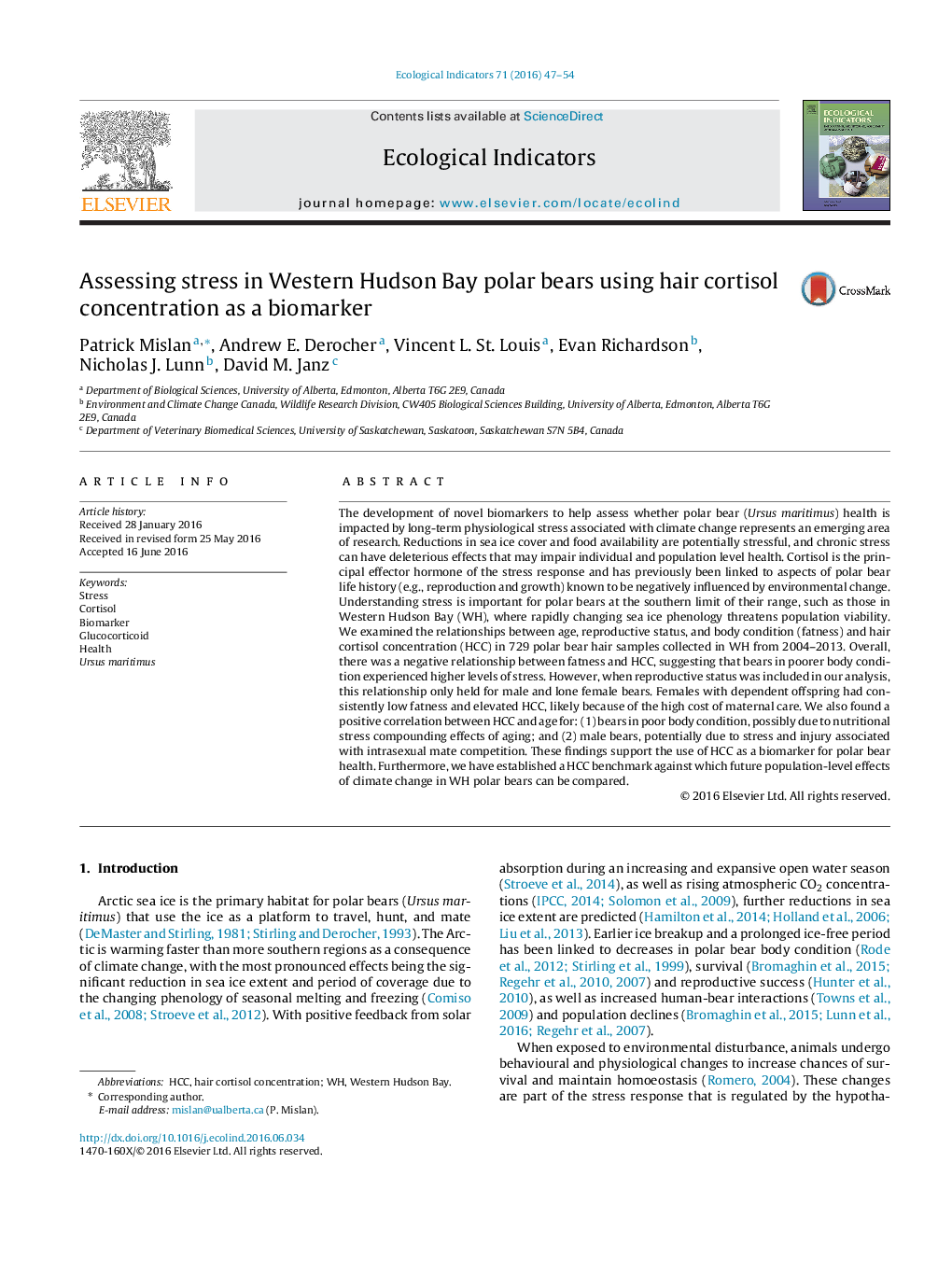| Article ID | Journal | Published Year | Pages | File Type |
|---|---|---|---|---|
| 6292902 | Ecological Indicators | 2016 | 8 Pages |
Abstract
The development of novel biomarkers to help assess whether polar bear (Ursus maritimus) health is impacted by long-term physiological stress associated with climate change represents an emerging area of research. Reductions in sea ice cover and food availability are potentially stressful, and chronic stress can have deleterious effects that may impair individual and population level health. Cortisol is the principal effector hormone of the stress response and has previously been linked to aspects of polar bear life history (e.g., reproduction and growth) known to be negatively influenced by environmental change. Understanding stress is important for polar bears at the southern limit of their range, such as those in Western Hudson Bay (WH), where rapidly changing sea ice phenology threatens population viability. We examined the relationships between age, reproductive status, and body condition (fatness) and hair cortisol concentration (HCC) in 729 polar bear hair samples collected in WH from 2004-2013. Overall, there was a negative relationship between fatness and HCC, suggesting that bears in poorer body condition experienced higher levels of stress. However, when reproductive status was included in our analysis, this relationship only held for male and lone female bears. Females with dependent offspring had consistently low fatness and elevated HCC, likely because of the high cost of maternal care. We also found a positive correlation between HCC and age for: (1) bears in poor body condition, possibly due to nutritional stress compounding effects of aging; and (2) male bears, potentially due to stress and injury associated with intrasexual mate competition. These findings support the use of HCC as a biomarker for polar bear health. Furthermore, we have established a HCC benchmark against which future population-level effects of climate change in WH polar bears can be compared.
Related Topics
Life Sciences
Agricultural and Biological Sciences
Ecology, Evolution, Behavior and Systematics
Authors
Patrick Mislan, Andrew E. Derocher, Vincent L. St. Louis, Evan Richardson, Nicholas J. Lunn, David M. Janz,
